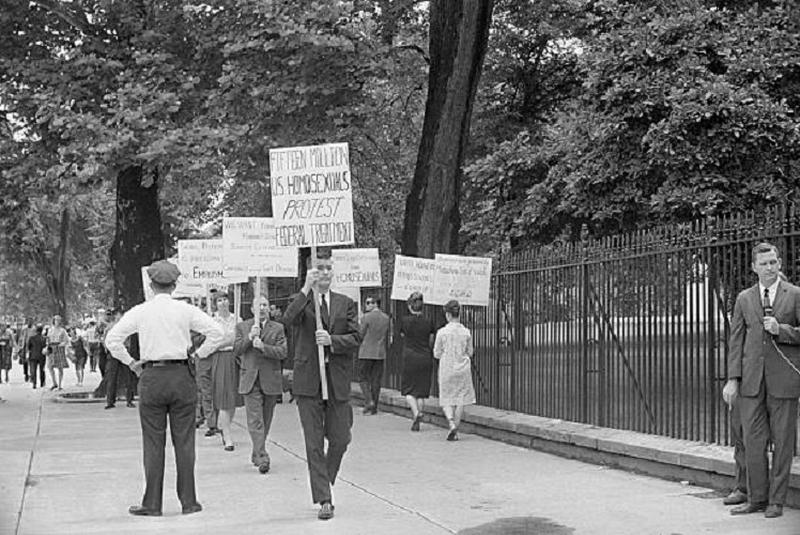Frank Kameny And The Fight For LGBTQ Rights
By | July 13, 2022

In 1950, after Joseph McCarthy claimed 205 communists were working in the State Department and President Truman’s administration was accused of not taking the threat of homosexuality seriously enough. By June, the Senate began investigating the government’s employment of homosexuals. Prior to this, Republican National Chairman Guy George Gabrielson said that “sexual perverts who have infiltrated our Government in recent years” were “perhaps as dangerous as the actual Communists.” They were also considered dangerous because they were considered more susceptible to blackmail, which made them a security risk. Joseph McCarthy, Roy Cohn (the chief counsel of McCarthy’s subcommittee), and J. Edgar Hoover were responsible for the firing of many homosexual men and women, and they used rumors of homosexuality to silence their opponents. The State Department reported it had fired 425 people who were accused of homosexuality during the final months of the Truman Administration.
Kameny Was Fired For Being Gay
Once Eisenhower came into office, he signed Executive Order 10450, barring homosexuals from working in the federal government. Soon, this extended to the state and local governments, and more than 20 percent of the labor force had to sign oaths attesting to their moral purity. One of the men affected by this was Frank Kameny. He had served in the U.S. Army during World War II and went on to obtain a doctorate in astronomy from Harvard. He was hired to work for the government, working as an astronomer for the Army Map Service in 1957. Unfortunately, shortly after being hired he was accused of being a homosexual and was questioned about his sexual orientation. He responded that “these were matters of his own personal life…having no relation to his performance in the position for which he was hired.” The Army fired him in January 1958 for “immoral conduct.” At the age of 32, he was prohibited from federal government work for the rest of his life.

Kameny Started To Fight Back
Angry at what had happened, Kameny spent the rest of his life fighting to end LGBTQ discrimination. He filed a lawsuit against the federal government in 1960, not with a claim that he wasn’t gay (others had based their claims on this), but instead, arguing that the government had no right to claim that homosexuality was immoral. The case ended up in the Supreme Court and has been regarded as the first sexual orientation-based civil rights case, although the Supreme Court refused to hear it. to be tried before the Supreme Court. Kameny did not win the case, and in 1961, he co-founded one of the earliest LGBTQ advocacy groups, the Mattachine Society of Washington. Kameny started writing letters to government officials, including the John F. Kennedy administration, who received their first letter from him only a few months after JFK’s inauguration. He continued to write to JFK, and often his arguments used JFK’s own words and ideas. In his first letter, he asked Kennedy for a “New Frontier” in the treatment of the LGBTQ community. In another letter, from August 1962, he referred to the line “Ask not what your country can do for you, but what you can do for your country,” indicating that the homosexual community knew what they could do for the country, but needed to be able to do it. He also pointed out the disparity between the political rhetoric and lived experience. He also began trying to get the American Psychiatric Association to remove the classification of homosexuality as a mental disorder. By 1973, the APA removed it.

It Took Time, But He Helped To Bring Change
In 1963, the Mattachine Society’s Secretary Bruce Schuyler requested a meeting, which garnered the only known response from the Kennedy administration, specifically from Civil Service Commission Chair John W. Macy. Macy denied the request. Kameny then informed officials that if they continued to ignore their correspondence, they would engage in more open protest. And so, in 1965, Kameny organized the first protest for gay rights in front of the White House. Ten years later, the Civil Service Commission ended the policy broadly banning gays from federal service; it would take some time for other bans to be lifted.
In 2009, Kameny received a formal apology from the U.S. government. On October 11, 2011, National Coming Out Day, he died at the age of 86.
